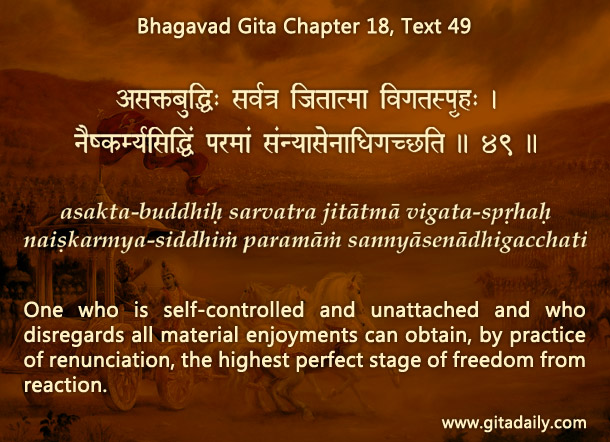Palliatives are medicines that alleviate pain without treating its root cause, whereas curatives address the root cause. Patients who take palliatives don’t feel the need for curatives, because they become numbed to the pain.
We are all like patients in material existence, being infected by the disease of misdirected desires. Though we are eternal spiritual beings, we desire to enjoy temporary material things. The temporariness of material things, frustrating as it is, is meant to push us towards seeking the eternal.
The pleasure we get from temporary things is like a palliative – it deludes us into thinking that everything is ok while death keeps creeping on us relentlessly. In contrast, the fulfillment we get from eternal things, ultimately from our devotional relationship with Krishna, is like the curative – it raises our consciousness above the material level, which is where death can exercise its destructive power.
Those who renounce the world are often like patients who stop all palliatives. The Bhagavad-gita (18.49) states that the renounced gradually attain life’s supreme perfection. Thankfully, the path to perfection is not restricted only to such renunciates. The Gita (18.56) declares that all of us, whatever our vocation, can attain the supreme destination by practicing bhakti-yoga.
Though bhakti opens the doors to perfection for everyone, not everyone wants to walk through the opened door. We too won’t get much impetus for walking through it if we, while externally practicing bhakti, seek relief and pleasure in worldly things. Instead if we minimize seeking such illusory shelters and maximize seeking shelter in Krishna, our journey towards him becomes sweeter and swifter: sweeter because Krishna reciprocates with us by manifesting in our heart, thereby granting sublime fulfillment; and swifter because we feel driven doubly by the absence of the palliatives and the potency of the curative.

Explanation of article:
Podcast:

Hare Krsna!
Thank you for delivering such a deep insight into the above verse, and emphasizing the curative, fulfilling potency of bhakti-yoga, i.e, maximizing seeking shelter in Krsna than in temporary worldly things.